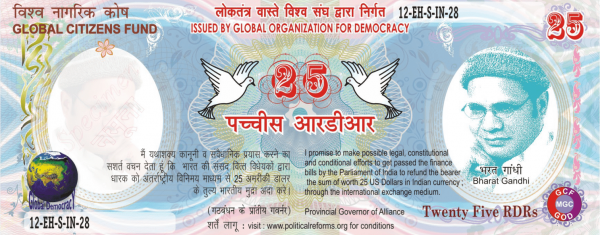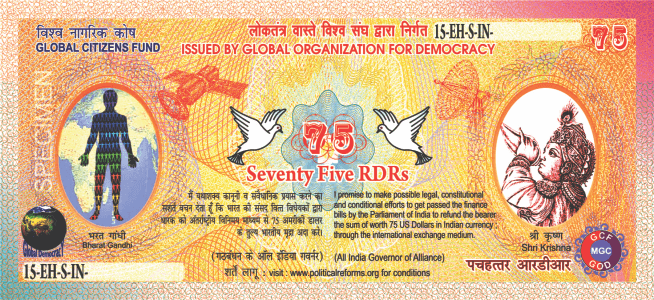Legal examination of Voters Party International, VPI donation policy
Voters Party international is a new political party registered with the Election Commission. The assumption of this party is that political parties take votes from the majority of the people of the country. But the parties don’t work for the economic interests of voters. The reason is that these voters do not donate to the party of their choice. Parties have to take money from corporate houses to reach power. Therefore, to make the rich corporate houses richer, they serve the government machinery in front of them to use. That is why parties take decisions against the economic interests of the people after coming to power. Due to these decisions, the reservation of economic constraints in the family of the majority of the people of the country persists from generation to generation. Voters Party International, VPI has devised a new strategy to ensure the functioning of the legislature, government, and administration as per the aspirations of the voters. The purpose of this article is to legally examine this very mechanism of political funding.
This party trained its members that if the lawyer does not get the fees, then the lawyer will not fight the case loyally. If the lawyer takes fees from the government, he will work for the government only. If he takes fees from corporate houses, he will work for them. Since parties are lawyers who fight in the legislature to serve the political, economic, and legislative interests of its voters. Hence, therefore, regular donations should also be given to that party every month.
In principle, members of the Voters Party International, VPI accepted the said conclusion of the party founders. But some practical problems arose. Most of the party members are so financially weak that they do not have the money to meet the minimum needs of their families. In such a situation, it is not possible for them to make regular donations to the party of their choice. In view of this situation, the party formed an Indian Grand Alliance with some other parties. All the parties assured their members that the party would work to get the money that the party members would give as donations refunded from the state exchequer along with compensation. Since the law to provide the facility of the public prosecutor to the poor is already in vogue. The government has already been bearing the expenses of government lawyers. Therefore, it is the responsibility of the government to return the money that the poor people give to their political party to avail the advocacy of their political interests. The later the money is returned, the greater the amount of compensation that should be returned.
The Indian Grand Alliance decided to request a charitable trust to print a specific certificate to issue to donors of political parties as donation records and donation certificates. This request was made to the trust so that it would be possible for all parties to get currency-like certificates to issue their donors. The party decided to buy certificates at the printing cost from the trust and issue them to its donors. This certificate/device was named “RDR”. Keeping in mind that the certificate paper should be durable, and safe even after falling into the water and production expenses should be minimized, keeping these objectives in mind, the trust was requested to make the RDR certificate currency note-like and small in size.
The certificate, duly written on the note, said that the party and the coalition of the party both would make legal and constitutional efforts with conditions to get the money returned from the public exchequer to the bearers of the “RDR” certificates.
It was written on the certificate that the organization issuing the certificate i.e. the party and the coalition will try to get the money refunded from the public exchequer to donors bypassing the finance bills from the legislature as if they had given the donations in American currency i.e. dollar instead of donated in the Indian currency. So that not only of the donated amount could be returned, but the amount could be returned with compensation also.
Prior to the production of RDR, in 2010, the sample of RDR and the intention behind it were written to almost all the major agencies of the Government requesting them to send legal opinion on it. But none of the agencies responded to the letter. The Reserve Bank only wrote that it “gives more detailed information”. Voters Party International duly prepared the Rules to issue RDR certificates to donors to the party. The party recognized two forms of donations. The first is a donation in “cash” and the second is donations in the form of “work and kind”. In this way, it was decided to issue RDR certificates to those who give their labor to the party but are not able to pay cash due to financial constraints. In order to prevent the fake printing of RDR samples, it was decided to register the RDR sample under the Trademark Act by the RDR printing agency/trust. Complete information about RDR can be obtained from the two videos given below.
The first subject of legal examination-
Are there any illegal facts embedded in the rules framed by the party for issuing RDRs and printing the RDRs in the above manner?
The second subject of legal examination-
After getting the RDR certificate samples, there was enthusiasm among the people to donate to the party. Party workers went door-to-door to explain the party’s policies. They started taking donations from people. They started sending donations to the party. The party decided to give some percentage of the donations received to the donation-collecting workers so that the poor workers who are victims of financial constraints can also work in propagating the party’s policies. In order to work for the party the expenses occurred on diesel, petrol, travel, food, and hotel items for the night stay can be recovered by the workers from the party. But in this way, it was difficult to pay the donation amount to the party workers. The reason is that the party workers were unable to give legal bills to the party in lieu of the financial support received from the party. That is why it became difficult to keep proper records of accounts.
In such a situation, the party made an agreement with a company. The party asked the company to recruit some employees and train them to transfer money online. Party also said that the company should deploy trained employees to go from village to village, house to house in the locality and collect the donations in cash and send it to the account of the party by online method. The party told the company that some percentage of that donation will be given to the company as a service charge. The company was suggested by the party to send some percentage of the money received as a service charge to the accounts of trained employees of the company by using the online software developed by the party. Thus those working on the ground will get money from the company. It will become legally possible to keep the records of the account as per law. In order to execute this project the company created a website after making an agreement with the party. The company gave a link to the online form on that website. Through this link, any person, who knows how to transfer money online, can connect as a “Facilitator” of the company. By joining as a Facilitator of the company, he/she can work to facilitate the donations to the party. He/she can receive some percentage of the number of donations from the company as a service charge facilitated by him/her. Thus a new way of employment can be created in the social sector. The company has uploaded a video for those who want to understand the work of the company. The second video was released by the company for those who want to become the company’s “Facilitator” online. A video appeal made to convince the members of the party is also helpful to know the exact words and style of motivating the public to donate to the party.
Question to examine
Does the agreement between the company and the party contain any fact which is illegal or punishable to the party or to the company under the Enforcement Act?



